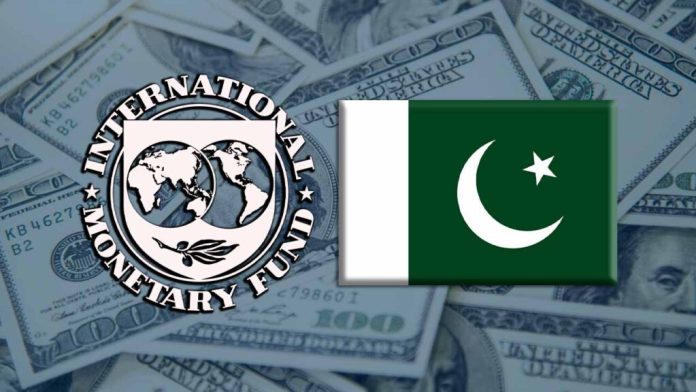ISLAMABAD: Prime Minister Shehbaz Sharif announced that Pakistan has successfully met the stringent conditions set by the International Monetary Fund (IMF). Speaking at a discussion on the Sustainable Development Goals (SDG) movement in the United States, PM Shehbaz also expressed his gratitude to friendly nations, including China, Saudi Arabia, and the United Arab Emirates, for their invaluable support in helping Pakistan navigate these challenges.
Prime Minister Shehbaz Sharif has urged developed nations to assist developing countries like Pakistan in escaping debt traps exacerbated by climate change-related disasters.
Speaking at the SDG Moment 2024 Meeting on the sidelines of the 79th United Nations General Assembly, PM Shehbaz stressed that while developing countries contribute little to global emissions, they are disproportionately affected by climate disasters.
“In 2022, we experienced the worst floods in our history, causing $30 billion in damages, and yet we are expected to borrow money to repay previous debts,” PM Shehbaz remarked.
He referred to this cycle as a “death trap,” calling for a more just system in which developed countries, responsible for the majority of global emissions, take responsibility and provide meaningful assistance.
The prime minister also pointed out that the financing gap for Sustainable Development Goals (SDGs) runs into trillions of dollars, leaving countries like Pakistan struggling to secure funds for vital projects.
He emphasised that without help from wealthier nations, achieving the SDGs would remain a significant challenge.
Beyond economic concerns, PM Shehbaz shed light on Pakistan’s ongoing battle against terrorism, which he referred to as one of the country’s greatest struggles since 9/11.
He revealed that 80,000 Pakistanis lost their lives due to terrorism pushed from across the border, with the country facing an economic loss of $150 billion during the counter-terrorism operations.
Despite these losses, he assured that Pakistan had successfully overcome the worst of the terrorist threats.
Shehbaz Sharif also took the opportunity to highlight his government’s focus on education reforms, noting that during his tenure as Chief Minister of Punjab and later as Prime Minister, significant strides were made in promoting education and supporting underprivileged communities.
One of his key initiatives, the Punjab Endowment Education Fund (PEEF), has been a game-changer in providing scholarships and stipends to students from impoverished backgrounds, allowing them to pursue education domestically or abroad.
He also mentioned the establishment of Danish Schools, an initiative aimed at providing quality education to talented orphans and children from poor families.
Equipped with modern resources like smart boards and staffed by skilled teachers, these schools have produced students who are now serving as doctors, engineers, and scientists.
However, PM Shehbaz lamented that despite these efforts, around 25 million children remain out of school in Pakistan, calling it one of the most pressing challenges his government aims to tackle through continued reform and enrollment drives.
On a final note, PM Shehbaz urged the international community to not only address the immediate financial needs of developing countries but also to take serious action on climate change and support education and vocational training to ensure long-term development.
Earlier this month, the International Monetary Fund (IMF) confirmed that its Executive Board will meet on September 25 to discuss the approval of Pakistan’s $7 billion Extended Fund Facility (EFF).
The loan is crucial for stabilising Pakistan’s economy, which has been grappling with rising inflation and dwindling reserves.
IMF spokesperson Julie Kozack announced the meeting during a press briefing on Thursday, saying, “We are very happy that we can say now that the board meeting is scheduled for September 25.”
This announcement comes after Pakistan secured the necessary financing assurances from development partners.
The $7 billion loan package had been under discussion since May, and a staff-level agreement was reached in July. Despite this, Pakistan faced delays in finalising the IMF Board’s approval.
The government has had to meet stringent IMF conditions, including the imposition of a record Rs1.8 trillion in new taxes and electricity price hikes of up to 51%.
Among other conditions, Pakistan agreed to halt the establishment of any new special economic or export processing zones.
The country also accepted that tax incentives for existing zones would not be extended after expiry.
These measures are part of a broader set of industrial policy changes that, critics say, effectively transfer control of key economic decisions to the IMF.
State Bank of Pakistan (SBP) Governor Jameel Ahmad confirmed that the country arranged over $2 billion in external financing from lenders other than the IMF. “All those assurances and external financing have already been arranged by the government, and I don’t see any further hurdle now in taking our case to the board,” Ahmad said during an analyst briefing.
Prime Minister Shehbaz Sharif, addressing the federal cabinet earlier in the day, praised the progress in negotiations with the IMF. “We are moving in the right direction with the Fund, and I am hopeful for a positive outcome,” he said, while also acknowledging the harshness of the imposed measures.
The prime minister thanked Pakistan’s friendly countries for their support, stressing the need for Pakistan to free itself from dependence on external loans and build a self-reliant economy. –Agencies



